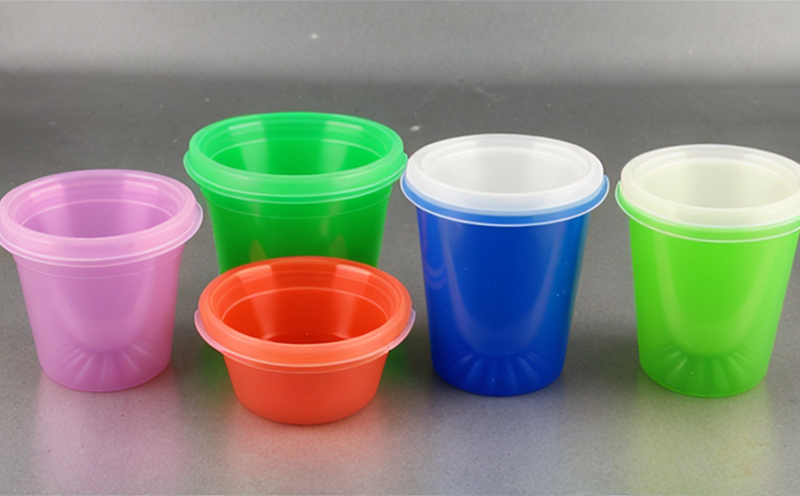DIN 53370 Disposable Plastics Water Absorption Testing
The DIN 53370 standard is a crucial benchmark in the testing of disposable plastics, particularly focusing on water absorption properties. This test is essential for ensuring that plastic products meet environmental and safety standards. The process involves measuring how much water a sample can absorb over time, which is critical for understanding its durability and performance under various conditions.
Water absorption tests are especially important in disposable plastics as they often come into contact with moisture during use or disposal. This test helps manufacturers determine the plastic's suitability for intended applications such as medical devices, food packaging, or household disposables. The DIN 53370 method ensures that these products remain safe and effective throughout their lifecycle.
Testing typically begins by conditioning the sample under controlled humidity levels to simulate real-world conditions. Once conditioned, the samples are weighed before being immersed in water at a specified temperature for an extended period. After soaking, they are removed from the water, dried, and reweighed to calculate the percentage of absorbed moisture.
The DIN 53370 test is widely recognized for its comprehensive approach to evaluating plastic components. It is particularly useful in ensuring that disposable plastics maintain their integrity when exposed to moisture, thereby preventing potential leaks or degradation over time. This standard plays a vital role in enhancing the safety and reliability of products used in various sectors.
Understanding the water absorption properties of disposable plastics allows manufacturers to optimize material selection and design for better performance. By adhering to DIN 53370, companies can ensure that their products meet stringent quality standards, thus gaining a competitive edge in the market. This test is not only about compliance but also about enhancing product quality, ensuring durability, and reducing waste.
The importance of this testing extends beyond mere regulation; it contributes to sustainable practices by promoting the development of more resilient materials that can withstand environmental stresses without compromising safety or performance. By investing in DIN 53370 compliant testing, businesses can contribute positively to both consumer health and environmental protection.
Scope and Methodology
The scope of the DIN 53370 test is focused on determining the water absorption capability of disposable plastics. This method ensures that plastic components used in various applications, such as medical devices or packaging materials, meet specific performance criteria under controlled conditions.
According to DIN 53370, the testing process involves conditioning the sample by exposing it to a specified relative humidity level for a defined period. The purpose of this step is to allow the plastic material to reach equilibrium with its surrounding environment, thus providing more accurate measurement results.
Following conditioning, the samples are weighed and then immersed in deionized water at 23°C ± 1°C for a duration ranging from 4 hours up to 7 days. During this time, the sample absorbs moisture, which is crucial for assessing its material properties under real-world conditions.
Upon completion of the soaking period, the samples are removed from the water and allowed to dry in an environment with controlled temperature and humidity until they reach a constant weight. This drying process ensures that any excess moisture is eliminated before reweighing. The difference between the initial and final weights gives the amount of absorbed water.
The test also includes determining the volume change of the sample, which can provide additional insights into how much the plastic expands or contracts upon absorbing water. These measurements help in evaluating the dimensional stability of the material under moisture exposure.
Benefits
- Evaluates the durability and performance of disposable plastics across various applications.
- Promotes compliance with international standards, enhancing market credibility.
- Ensures product safety and reliability by identifying potential weaknesses in material design.
- Aids in optimizing material selection for better overall performance.
- Supports the development of more sustainable products through enhanced durability under moisture exposure.
- Facilitates regulatory compliance, reducing the risk of product recalls and legal issues.
- Improves customer satisfaction by delivering high-quality, dependable products.





